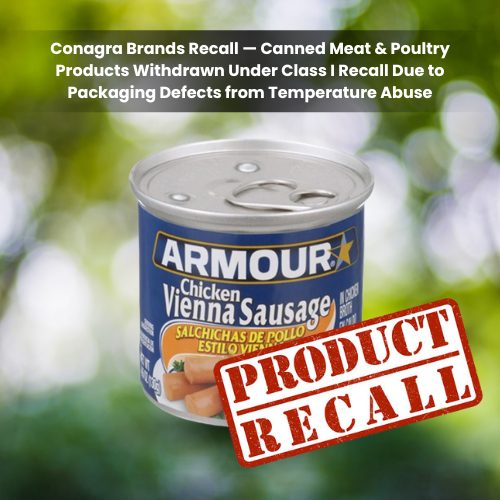Description of the product
Company: Conagra Brands (Multiple Private Labels)
Product Type: Canned Poultry and Meat Products
Packaging Type: Metal cans (various sizes and labels such as chili, stew and meat-based soups).
Issue: Temperature abuse that has resulted in packaging defects
Recall Class: Class I (High Risk)






